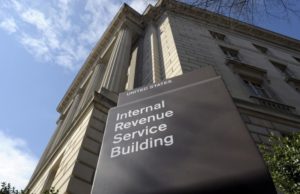How to Efficiently Scale With Capital

The goal of most startup companies is to achieve growth and profitability. However, the process of achieving those goals can be different for every company. The key to long-term success for most startups is to scale with efficiency, but that is not always easy. I recently read an interview by Alan Olsen, CPA and Managing Partner Greenstein, Rogoff, Olsen & Co., LLP a regional CPA firm of Montgomery Kersten, an angel investor and Independent Board member of several startups in Silicon Valley. Alan mentioned to Monty that many well-known startup companies have a reputation of burning through a lot of cash quickly. So Alan asked him how he helps companies scale and balance spending with growing their profits to a break-even point?
Old-Fashioned Approach
Monty said when it comes to scaling he is much more old-fashioned than many of the current crops of big-name startup companies, including Uber, which raised huge amounts of funding and have a massive marketing footprint. He has nothing against what these companies are doing. But Monty believes in capital efficiency and building huge shareholder value with small injections of financing. “I like the old fashioned way of modest capital, great productivity, profitability; conserve and build cash, after you have to burn it for a short period of time.”
Startup Bubble Time?
Alan asked Monty if we were currently in a startup bubble? “Everybody has their own view. I strongly feel that we are in a startup bubble. We’ve had a record amount of venture capital dumped into companies that aren’t profitable and that aren’t having exits. We have almost no IPOs and many fewer acquisitions and a whole lot of unicorns with no way out for investors. I think there’s a big bubble that’s going to pop here and I think Silicon Valley traffic patterns are going to get easier for our commutes in the next year.”
More IPOs Needed
Alan asked Monty about the fact that there are no exits? “It’s a very, very serious problem because the venture capitalists promise their investors returns that are liquid cash. They have to return cash or public stock to their limited partners, as a way to pay them back and reward them with returns on their capital. If they have no acquisitions of their own investments and they have no IPOs they don’t have any value yet, beyond just the paper stock certificate that they can give back to their limited partners. So there is an imperative to break the log jam in IPOs and to have acquisitions happen more frequently.” Monty foresees a revisiting of the dot.com bust; not so much in dot.com businesses today but in young startups that have raised too little and spent too quickly. Those companies that have too thin a business model and didn’t have a plan to win customers and turn profitable in time could be in trouble. “I think you’re going to see a lot of washouts intentionally let go by the venture capitalists so they can concentrate on the stronger horses they have running in the race.”
To view the whole interview between Monty Kersten and Alan click here
When Not to Name Your Spouse the Beneficiary of Your IRA
When Not to Name Your Spouse the Beneficiary of Your IRA By Robert Cavanaugh In most cases, naming your spouse as the beneficiary of your IRA makes the most sense. However, depending on your wishes, other beneficiary arrangements may do a better job of accomplishing your goals. First, let’s take a quick look at the…
IRS Guidance for SEC Disclosure of Listed Transaction Penalties
IRS Guidance for SEC Disclosure of Listed Transaction Penalties On August 15, 2005, the IRS issued guidance to taxpayers who are required to disclose listed transaction penalties to the SEC. Rev. Proc. 2005-51 sets forth the form, content, and timing of SEC disclosures for certain reportable transaction penalties that taxpayers are required to make pursuant…
How to be a “Tax-Conscious” Investor
How to be a “Tax-Conscious” Investor “Uncle Sam wants you!” goes the slogan on that old poster. He also wants you to pay taxes. On the income from your employment. On what you earn from many of your investments. On a portion of the gain from the sale of those investments. But there is a…
President Going After the Wealthy Again With Proposed Tax Hikes
President Going After the Wealthy Again With Proposed Tax Hikes By Alan Olsen, CPA, MBA (tax) Managing Partner Greenstein Rogoff Olsen & Co. LLP The divide between Republicans and Democrats on Capitol Hill appears to be spreading even wider after President Obama used his State of the Union Address to take dead aim at high…




